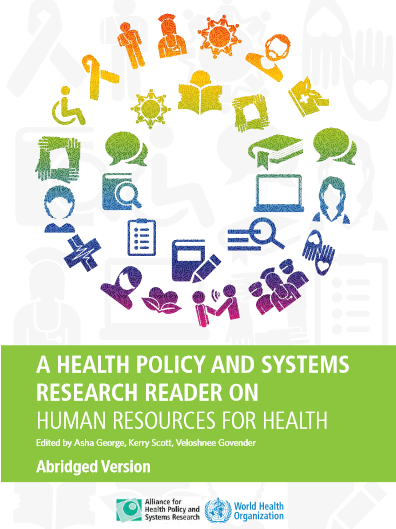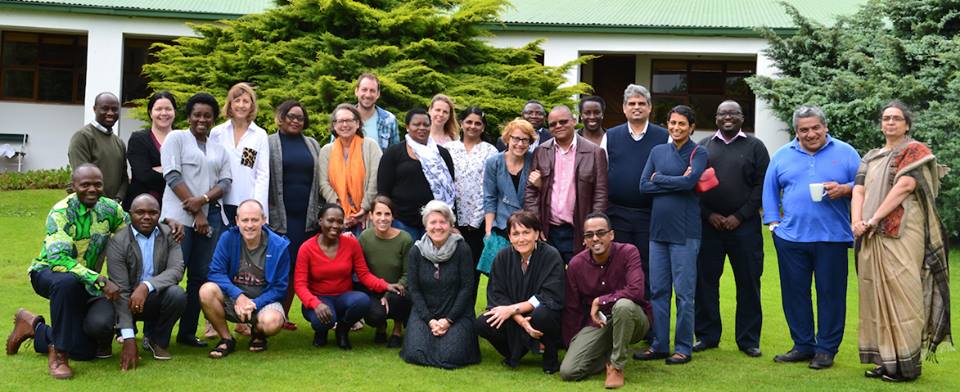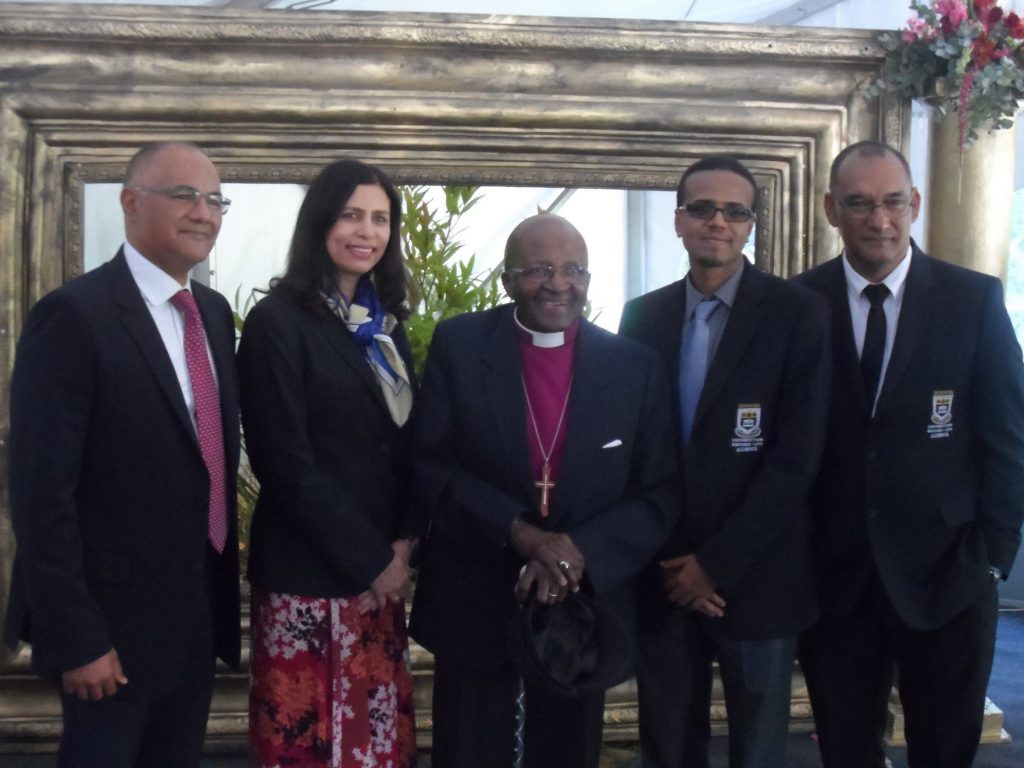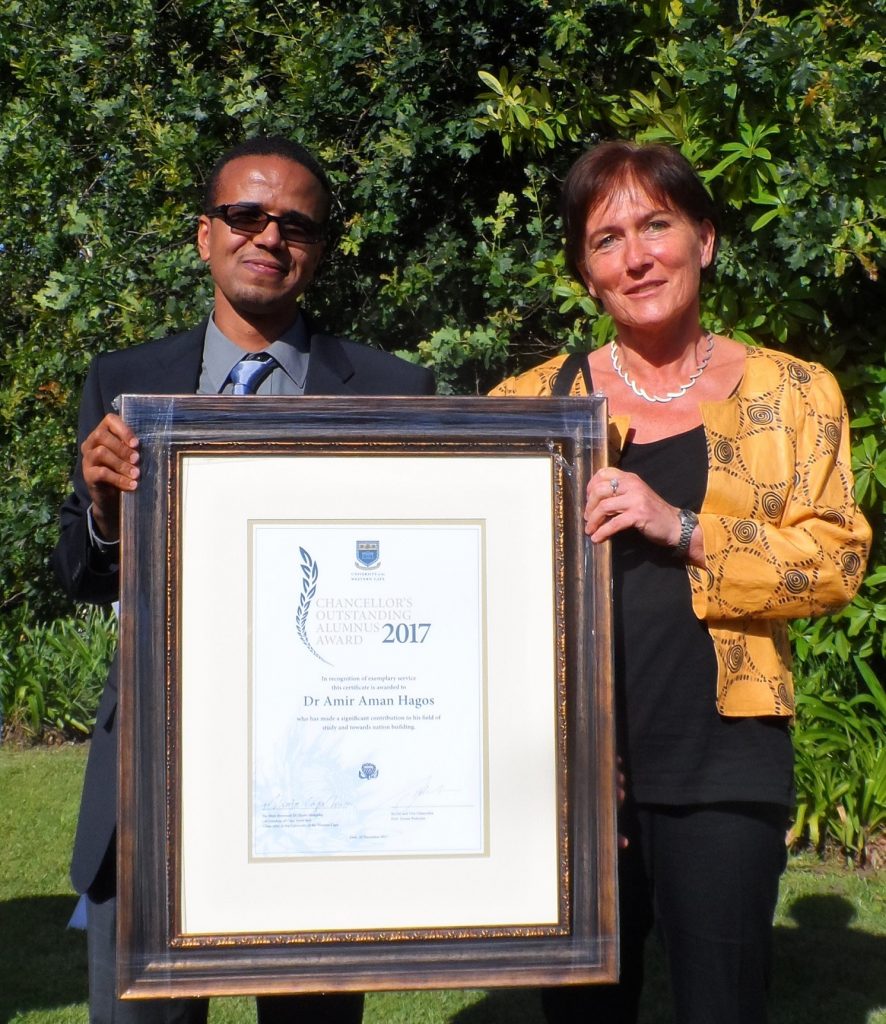
A Health Policy and Systems Research Reader on Human Resources for Health launched
16 November 2017
UWC and Umeå (U2U) held HPSR capacity building workshop in Cape Town
29 November 2017SOPH Alumnus Wins 2017 Chancellor’s Outstanding Alumnus Award
SOPH Alumnus, Dr Amir Aman Hagos, wins 2017 Chancellor’s Outstanding Alumnus Award for making a significant contribution to his field of study and towards nation building. Read below introduction and response by Prof Uta Lehmann and Dr Amir Hagos, respectively.

Director of School of Public Health, Professor Uta Lehmann introduces Dr Amir Aman Hagos
When Dr. Amir Aman Hagos registered for a Master of Public Health at UWC in 2011 he was a young (25-year-old) hospital director at a regional hospital in Ethiopia. He says of his studies at UWC: “The experience made me rethink everything,”. Through his studies and the research he did for his thesis on how to retain community health workers, Dr Hagos recognized he could have a far greater impact on the health of all Ethiopians than he was achieving as a hospital director. He requested a transfer to the Ministry of Health’s human resources department. In this role, he is transforming his Ministry’s approach to increasing the numbers and skills of the country’s health workers.
By the time he graduated in March 2013 (having completed his degree part-time in record time) he was Deputy Minister of Health (MOH) of the Federal Democratic Republic of Ethiopia, a position he has held since then. At 27 years old, Dr. Hagos became one of the youngest deputy ministers to lead a ministry, and the sector has seen many significant successes under his leadership. In particular he has led reforms on health care financing, human resource, health information, technology and infrastructure. During his tenure human resource development has been a key strategic initiative that has resulted in significant increases in enrolment, graduation and deployment of health professional staff. For example, medical schools in Ethiopia increased from 13 to 32, and enrolment of medical student increased from less than 1,000 to 3,100 per year. As a task-shifting measure more than 400 Integrated Emergency Surgical Officers and 9000 midwives having been trained to reduce high maternal, prenatal and infant mortality rates and trauma related morbidities and mortalities. And the country has seen an expansion of its Health Extension Program (HEP), with the recruitment, training and deployment of an additional 9,000 Health Extension Workers (HEWs). There is international consensus that the HEP has significantly contributed toward Ethiopia meeting the MDGs and the provision of universal health care.
Dr. Hagos is known for championing and inspiring a new generation of health professionals through dedicated public service and has inspired volunteerism. His leadership in increasing the quality and volume of medical services and task shifting have been profiled as a model of public service both nationally and internationally.
Internationally, Dr. Amir serves Co-Chair of WHO’s Transforming IHP+ International Health Partnership for UHC 2030 which is dedicated to building a partnership to strengthening health systems and is a member of numerous related committees.

Dr. Amir Aman, State Minster of Ministry of Health-ETHIOPIA, responds
First, I bring you special greetings from Ethiopia!
I must say that I am humbled, honored, and at the same time excited to be in your midst to receive the Outstanding Alumnus Award.
I thank you all!
Let me remind you all that there is a special connection between Ethiopia and South Africa.
On his experience in 1962 in Ethiopia, in his book “Long Walk to Freedom” Nelson Mandela writes that — “For the first time in my life, I was witnessing black soldiers commanded by black generals applauded by black leaders who were all guests of a black head of state. It was a heady moment. I only hoped it was a vision of what lay in the future for my own country. Ethiopia has always held a special place in my own imagination and the prospect of visiting Ethiopia attracted me more strongly than a trip to France, England, and America combined.”
Moreover, Mandela writes that it was in Ethiopia that — “I felt myself being molded into a soldier and began to think as a soldier thinks — a far cry from the way a politician thinks.”
Although it may not be an apt comparison, for me, it was also at University of Western Cape here in South Africa that I felt myself being molded as a public health expert and public servant – which solidified my commitment to public service.
Thank you University of Western Cape!
To me, public service is a sense of all possibilities to make positive impact in people lives!
To me, public service is a highest calling that one only feel from the inside!
As a public health servant winning this award would not have been possible without the inspiration I have received from teachers and colleagues, for whom I have the deepest respect, and from whom I have derived the strength to challenge myself and perform better. Therefore, I sincerely thank each one of them for helping me reach a stage where I can proudly hold up this award as a mark of ours and not my achievement.
Thank you all!
In the coming years I also want to note that I’ll be looking forward to developing a collaborative and working relationship between University of Western Cape and my Ministry of Health.
Finally, quoting Maya Angelou’s “People will forget what you said, people will forget what you did, but people will never forget how you made them feel.”
Indeed, throughout my higher level education here at the University of Western Cape I felt most welcomed!
I will always remember and cherish the warmth and feelings of being welcomed here at University of Western Cape
